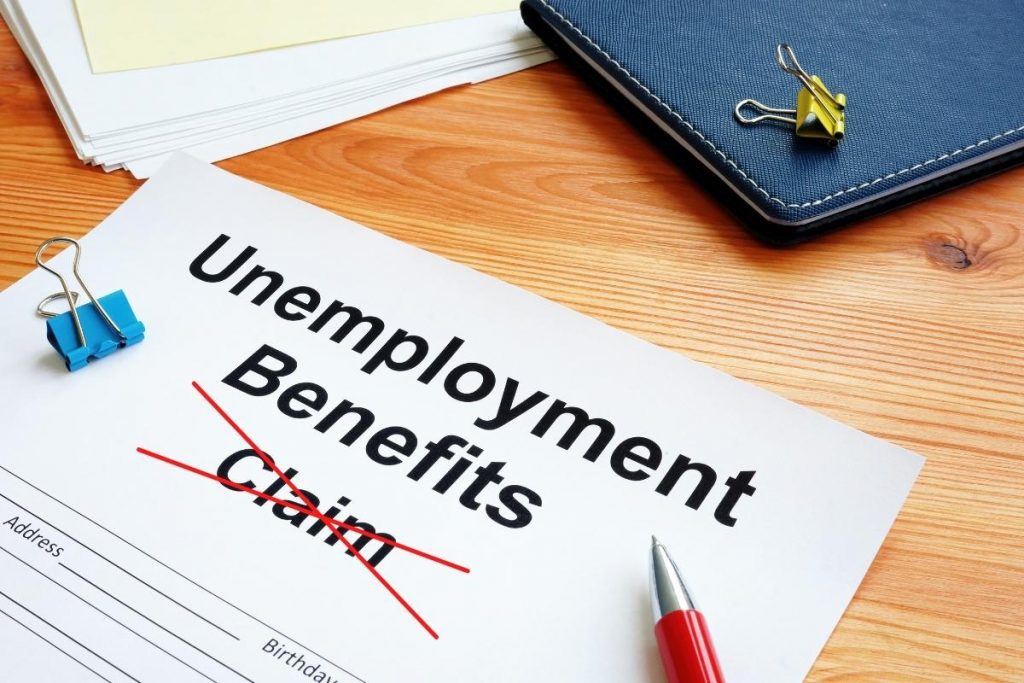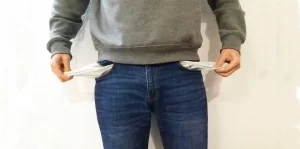Unemployment benefits are a great temporary support when you lost your job and you need some time to find a new one.
But what happens with your unemployment claims when you finally found your new dream job? Who do you have to tell, and how to cancel your unemployment benefits?
We have all the answers on unemployment for new full time and part time workers here.

Go to Page Section:
How To File For Unemployment
Before we jump into how to cancel your benefits, it’s a good idea to see how you file for unemployment as this will determine how to cancel the benefits.
Each of the 53 states in the US have their own unemployment systems, and their territories all have slightly different rules when it comes to benefits.
All these differences can make the process of filing for unemployment time consuming, and difficult for those who file for benefits for the first time.
Who Qualifies For Unemployment Benefits?
Depending on the individual state law, generally only those who are unemployed through no fault of their own can claim unemployment.
In most states, you will also have to meet certain ware requirements to file for benefits. This is dependent on wages earned or a certain period of time that you worked (most states accept the first four out of five completed calendar quarters before you filed a claim).
Some US states also have other additional requirements that you need to meet before you can file for unemployment. It’s best to check with your own state’s program for more details.
Unemployment Benefits Regular Claims Requirements
When your unemployment benefits claim has been approved, you are required to regularly seek work, and should not refuse a job you find.
The majority of states offer unemployment for the first 26 weeks but after that you used to need to file for an extension. However, this has been changed in 2020 so that now every unemployment recipient will receive an automatic extension for their benefits.
How To Cancel Your Unemployment Benefits
You finally found a new job and you are ready to come off unemployment. But how do you now cancel your claims?
Generally, you have to make sure that you cancel your unemployment so you don’t receive a penalty for overpayment.
How you cancel your unemployment depends on where you filed your claim as each states has slightly different regulations and unemployment systems in place.
Simply Stop Certifying
We already mentioned that in order to receive an unemployment claim you need to certify with the state for each weekly payment.
This usually means that you need to ring the claims line or log into a claims website to answer questions about your claim’s eligibility.
Once the state has reviewed your answers, they’ll release your claim’s payment to you.
That’s why, another way to stop collecting unemployment benefits is simply to stop certifying for the payments.
Many recertification forms even have a checkbox for you to tick if you want to stop claiming benefits immediately.
Then you’ll not receive any money anymore, and usually the state decides to close any claims after three missed certifications.
While each state has a different system, all 53 US states allow you to stop recertifying each week and accept this as a closed claims case.
Contact The State You Live In
Another easy option to close your unemployment claim is to contact your state’s unemployment division.
Simply ring the claims line and speak to a claims representative who will be able to cancel your unemployment benefits with immediate effect.
Unemployment And Part Time Employment
Your new job may not be full time but part time employment. What happens with your unemployment claims then?
Although this always depends on individual circumstances, you can generally continue to collect unemployment if you work part time.
If you earn less per week than you are entitled to in UI benefits, then you don’t need to cancel your employment.
You can continue to file claims and report any earned income for the week.
However, be aware that your UI benefits payments will be reduced by the amount of income you earned.
Generally, you can earn UI until:
- You exhaust the funds which you are entitled to
- The benefits year’s end
- You start earning higher wages than you are entitled to in UI benefits
All part time workers still must be compliant with the program’s requirements, which may include submitting weekly evidence your job search activities.
Each state has slightly different unemployment regulations so it’s a good idea to check with the state where you live for more details.
Good To Know About Part Time Work And UI Benefits
Most part-time employees are able to collect UI benefits for longer than they might qualify for with full benefits. This is because they don’t usually reach the maximum benefit cap as quickly.
For some part-time employees, it’s even possible to qualify for a new unemployment claim when their initial benefits years run out because they have earned wages which qualify them for a subsequent claim.
However, it’s important for all part-time workers to be familiar with UI reporting standards so they avoid receiving overpayments.
Overpayment
You may not have had the chance yet to let the state know that you found a new job or that you don’t need to claim unemployment anymore.
When you receive an unemployment payment while you were working and earning money, you need to make sure that you put aside any monies you receive from the unemployment division.
It’s important that you don’t spend the money as you will have to pay it back later.
Try to contact your state’s unemployment division immediately to report the overpayment.
If you receive the payment via check, then cancel the check. If you received the money via your bank account, you may have to return the amount to the state. However, check with your state first as this can vary depending on where you live.
Overpayment Penalties
If you have received a payment from unemployment compensation without being eligible, you should return the money.
Each state performs regular checks on their benefits claims accounts to ensure there are no inconsistencies.
If you intentionally choose not to tell the state about the overpayment, you will face serious fines and, in some states, even criminal charges.
Conclusion
While unemployment systems vary from state to state, benefits are only ever a temporary means to support you in a financially difficult time.
Once you found a new job and earn wages, you need to contact your state to cancel your unemployment benefits.
You can still continue to claim benefits when working part-time but your wages must not exceed the weekly UI payments, and the money will be deducted from your UI payments.
Whether you found a full time or part-time job after claiming unemployment, it’s always a good idea to check with your state how to ensure your benefits claims are cancelled.










